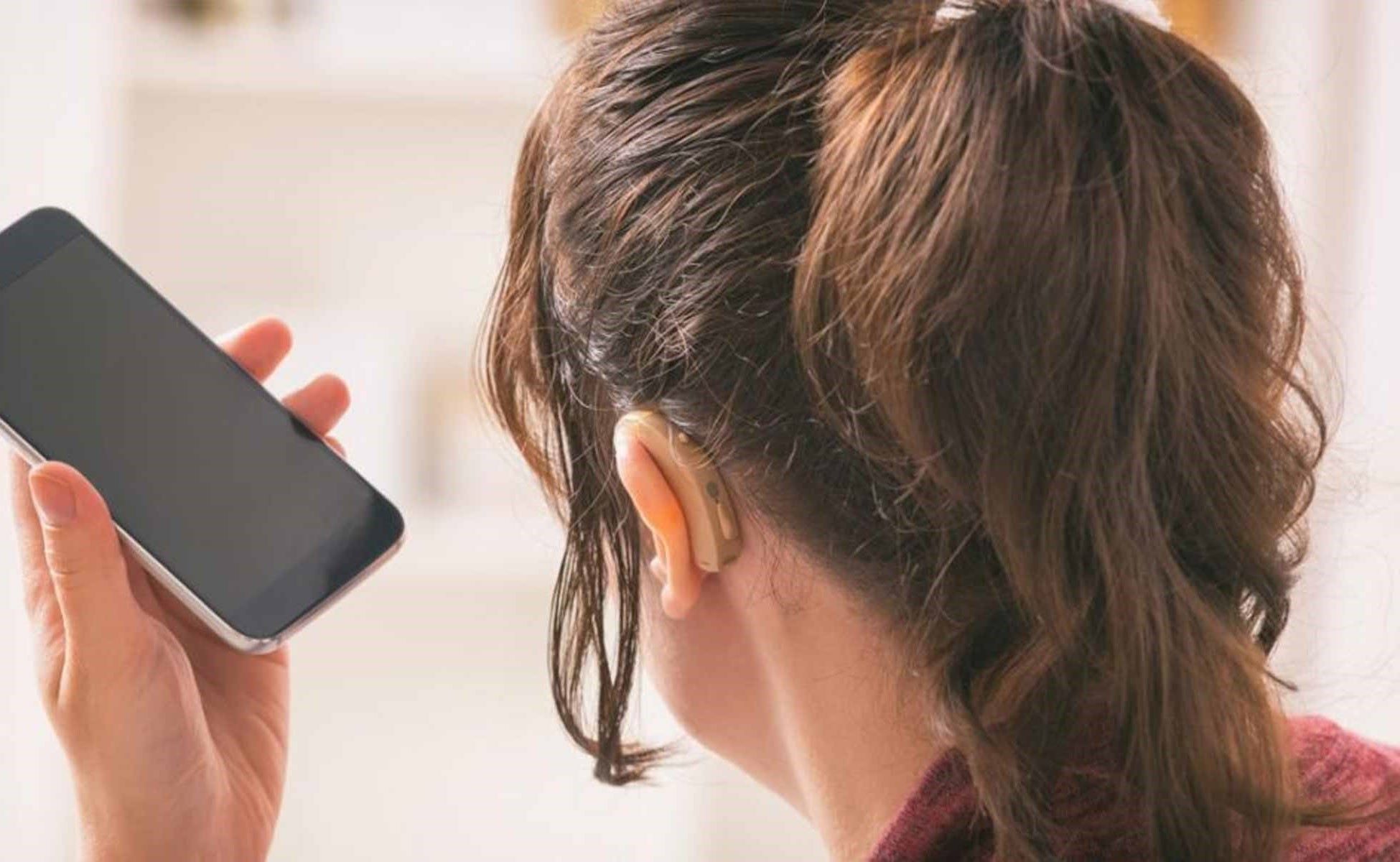
Deafness affects millions worldwide, yet many misconceptions persist. Understanding this condition can foster empathy and inclusion. Did you know that American Sign Language (ASL) is a complete language with its own grammar and syntax? It's not just a visual representation of English. Deaf culture is rich and diverse, with its own traditions, values, and social norms. Technology has significantly improved communication for the deaf, from cochlear implants to video relay services. However, not all deaf individuals choose these technologies, valuing their natural state. Deafness isn't just about hearing loss; it's a unique way of experiencing the world. Let's dive into 48 intriguing facts about this fascinating topic.
Understanding Deafness
Deafness affects millions globally, yet many misconceptions persist. Let's explore some fascinating facts about this condition.
-
Deafness can be congenital or acquired. Congenital means present at birth, while acquired occurs later due to illness, injury, or aging.
-
Hearing loss varies in degree. It ranges from mild, where soft sounds are hard to hear, to profound, where no sound is heard at all.
-
Sign language is a primary communication method for many deaf individuals. Each country often has its own unique version, like American Sign Language (ASL) or British Sign Language (BSL).
-
Lip reading is another technique used by some deaf people. It involves understanding speech by visually interpreting the movements of the lips, face, and tongue.
-
Cochlear implants can help some deaf individuals hear. These devices bypass damaged parts of the ear and directly stimulate the auditory nerve.
Causes of Deafness
Understanding what leads to deafness can help in prevention and treatment.
-
Genetics play a significant role. Many cases of congenital deafness are inherited.
-
Infections like meningitis, measles, or mumps can cause hearing loss. Vaccination helps prevent these illnesses.
-
Ototoxic drugs can damage the ear. Some antibiotics and chemotherapy drugs have this side effect.
-
Noise exposure is a common cause of hearing loss. Loud environments, like concerts or construction sites, can damage hearing over time.
-
Aging naturally leads to hearing loss. This condition, known as presbycusis, affects many elderly individuals.
Communication and Technology
Advancements in technology have significantly improved communication for deaf individuals.
-
Video relay services allow deaf people to communicate via sign language interpreters over video calls.
-
Text messaging and email provide accessible communication methods. These technologies have reduced reliance on voice calls.
-
Hearing aids amplify sound. They are useful for those with partial hearing loss.
-
Captioning on TV and online videos makes content accessible. Many platforms now offer automatic captioning features.
-
Vibrating alarms and alert systems help deaf individuals stay aware of their surroundings. These devices can signal doorbells, smoke alarms, or phone calls.
Cultural Aspects of Deafness
Deafness is not just a medical condition; it is also a cultural identity for many.
-
Deaf culture values sign language, social interaction, and shared experiences. It is a rich and vibrant community.
-
Deaf schools provide education tailored to the needs of deaf students. These institutions often use sign language as the primary mode of instruction.
-
Deaf clubs and organizations offer social and recreational activities. They help build a sense of community and belonging.
-
Deaf artists contribute to various fields like theater, film, and visual arts. Their work often reflects their unique perspectives and experiences.
-
Deaf sports include events like the Deaflympics. These competitions provide opportunities for deaf athletes to showcase their talents.
Misconceptions About Deafness
Many myths and misconceptions surround deafness. Let's clear up some of these misunderstandings.
-
Deaf people are not necessarily mute. Many can speak, but choose not to, preferring sign language.
-
Hearing aids do not "cure" deafness. They assist with hearing but do not restore normal hearing.
-
Sign language is not universal. Different countries have their own versions, and they are as complex and rich as spoken languages.
-
Deafness does not affect intelligence. Deaf individuals have the same range of intellectual abilities as hearing people.
-
Lip reading is not foolproof. It is a challenging skill and not all deaf people can lip-read effectively.
Famous Deaf Individuals
Many deaf individuals have made significant contributions to society.
-
Helen Keller was both deaf and blind. She became an author, activist, and lecturer, inspiring millions.
-
Ludwig van Beethoven composed some of his greatest works while losing his hearing. His music remains influential today.
-
Marlee Matlin is an Academy Award-winning actress. She advocates for deaf rights and awareness.
-
Thomas Edison was partially deaf. His inventions, like the phonograph and electric light bulb, changed the world.
-
Nyle DiMarco is a model and actor. He won "America's Next Top Model" and "Dancing with the Stars," promoting deaf culture.
Education and Employment
Deaf individuals face unique challenges in education and employment.
-
Mainstream schools often integrate deaf students. These students may use interpreters or assistive technology.
-
Specialized programs at universities cater to deaf students. Gallaudet University is a renowned institution for higher education for the deaf.
-
Employment rates for deaf individuals are lower than for hearing people. Discrimination and lack of accommodations contribute to this disparity.
-
Workplace accommodations can include interpreters, captioning, and modified equipment. These adjustments help deaf employees perform their jobs effectively.
-
Deaf entrepreneurs are making their mark. Many start businesses that cater to the needs of the deaf community.
Health and Well-being
Deaf individuals have specific health and well-being considerations.
-
Mental health issues can be more prevalent. Isolation and communication barriers contribute to this.
-
Access to healthcare can be challenging. Communication barriers often make medical appointments difficult.
-
Deaf-friendly clinics and hospitals provide interpreters and other accommodations. These facilities ensure better healthcare access.
-
Physical fitness is important. Deaf individuals participate in various sports and physical activities.
-
Community support plays a crucial role. Support groups and networks provide emotional and practical assistance.
Legal Rights and Advocacy
Deaf individuals have specific legal rights and advocacy needs.
-
The Americans with Disabilities Act (ADA) protects the rights of deaf individuals in the U.S. It mandates reasonable accommodations in public spaces and workplaces.
-
Interpreters are often required in legal settings. Courts and law enforcement must provide interpreters for deaf individuals.
-
Advocacy organizations like the National Association of the Deaf (NAD) work to protect and promote the rights of deaf individuals.
-
Education laws ensure deaf students receive appropriate accommodations. The Individuals with Disabilities Education Act (IDEA) mandates this.
-
International treaties like the Convention on the Rights of Persons with Disabilities (CRPD) promote the rights of deaf individuals globally.
Technology and Innovation
Innovations continue to improve the lives of deaf individuals.
-
Smartphones offer various apps for communication. These include sign language dictionaries and video calling apps.
-
Wearable technology like smartwatches can provide alerts through vibrations. These devices help deaf individuals stay connected.
-
Virtual reality (VR) is being used for sign language education. VR provides immersive learning experiences.
Final Thoughts on Deafness
Understanding deafness opens doors to empathy and better communication. From sign language to assistive technology, there are many ways to support the deaf community. Knowing that deafness can be congenital or acquired helps in grasping its complexity. Deaf culture is rich and vibrant, with its own norms and values. Learning about famous deaf individuals like Helen Keller and Marlee Matlin can be inspiring. Simple actions, like facing someone when speaking or learning basic sign language, can make a big difference. Awareness and education are key to breaking down barriers. By embracing diversity, we create a more inclusive world. Remember, deafness is just one aspect of a person’s identity. Everyone deserves respect and understanding. Let’s continue to learn and grow together.
Was this page helpful?
Our commitment to delivering trustworthy and engaging content is at the heart of what we do. Each fact on our site is contributed by real users like you, bringing a wealth of diverse insights and information. To ensure the highest standards of accuracy and reliability, our dedicated editors meticulously review each submission. This process guarantees that the facts we share are not only fascinating but also credible. Trust in our commitment to quality and authenticity as you explore and learn with us.


